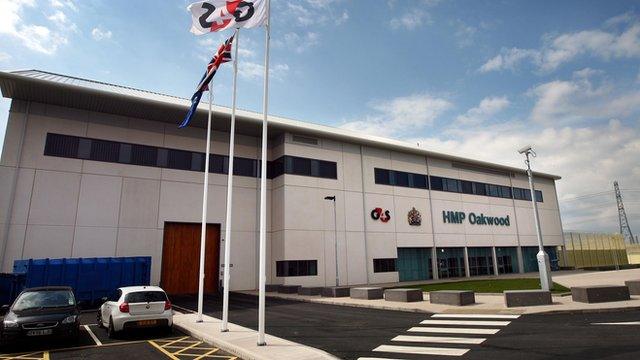Inside the UK's biggest prison
- Published
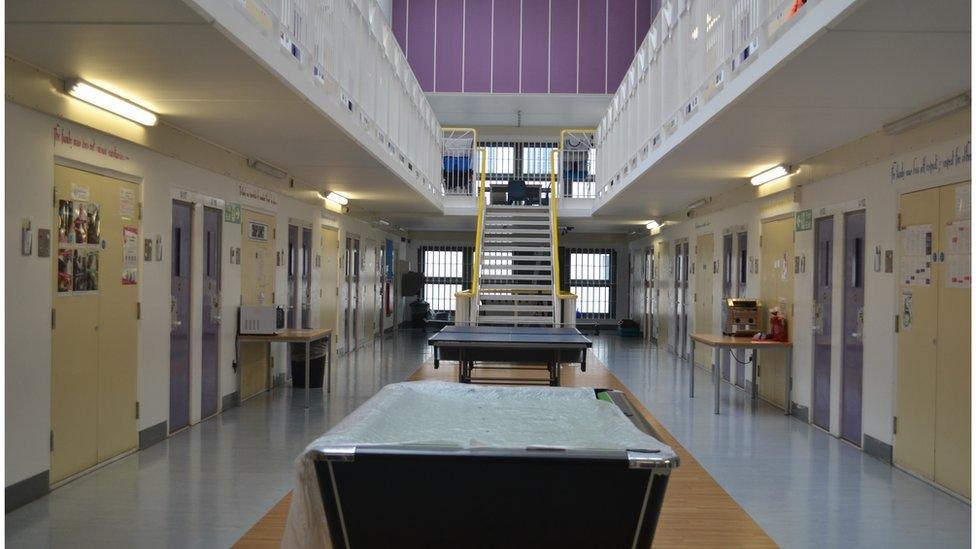
There is a concern among some prisoners the housing blocks will become overcrowded
By the end of this year, HMP Oakwood in Staffordshire will be the largest prison in the UK, with more than 2,000 inmates. Run by private firm G4S, Oakwood's reputation was dented in 2014 when a wing in the prison was taken over by inmates. Sima Kotecha has been inside.
This jail is big. From a distance, it looks like a warehouse. But close up, the high fences and barbed wire project an image of incarceration.
The site covers 50 acres and has two workshops, one the size of a football pitch.
Through security and the first set of large iron gates, we are presented with five housing blocks, or wings, as they are referred to in jail-speak. The three largest wings house more than 400 prisoners.
Sima Kotecha reports from Oakwood prison
By the end of this year, this jail will be the largest in the country with more than 2,100 prisoners. Currently there are just over 1,600.
As the inmates make their way around the estate, they stop to talk. Many are quick to tell us how much they like the prison, including one who is inside for supplying class A drugs.
He said: "In my cell I have a toilet and a sink, a TV, somewhere to put my pictures. It's fantastic for a prison, it's really up to date."
HMP Oakwood is one of five prisons in the UK managed by G4S and the company has been battling reputational damage since a part of this prison was taken over by inmates a couple of years ago.
This resulted in the jail being branded by its critics as Jokewood, a name that stuck with the media.
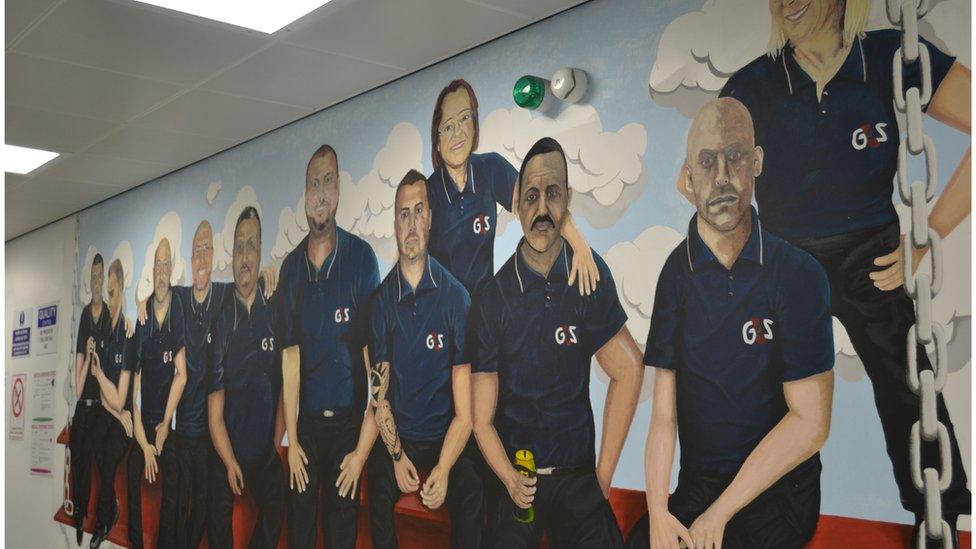
Both staff and inmates used first names only when speaking to each other
So what is the team doing differently, if anything, to move away from that image?
The staff who work here say its unique approach is based on prisoners helping prisoners to rehabilitate, and that is done through an enhanced mentoring scheme.
There is also a health and legal service on site run by inmates who have relevant qualifications so that they are able to help and advise prisoners with any problems.
The prison has a no surname policy here: both staff and inmates use first names only to create an informal environment.
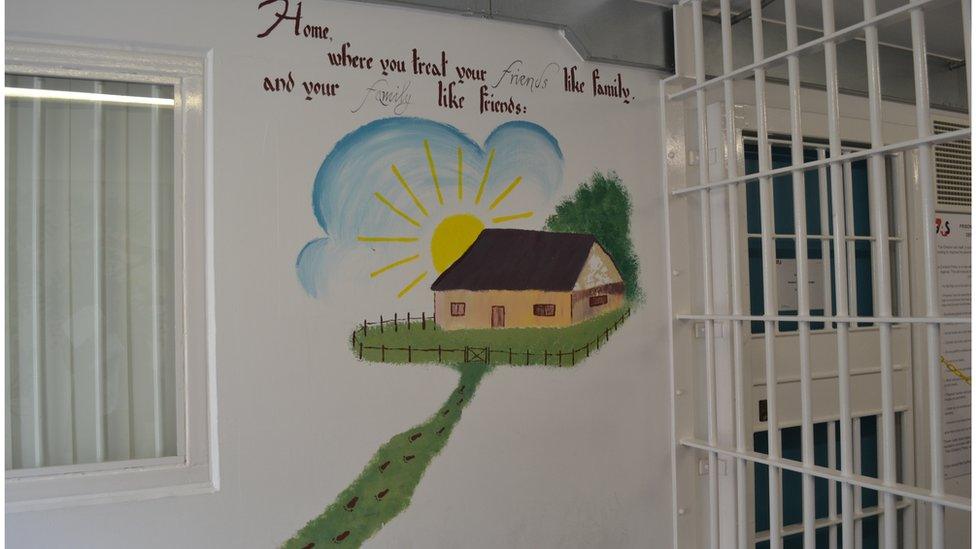
The prison has tried to move on from the troubles in 2014
But not everybody agrees with a friend-like relationship between officers and inmates.
A middle aged man who is doing time for sex offences told us such an attitude was bound to lead to more violence.
"Personally I don't find it helpful to call them by their first names because I think that's almost too familiar, there is a potential breakdown in the barrier between authority and prisoner and I've seen where it's got out of control because of that." he said.
In his 2015 report into HMP Oakwood, the chief inspector of prisons said levels of violence had reduced and that the use of mentoring was impressive.
But he also said incidents of self-harm were high and that illicit drugs were easily available.
Profit worries
Violence behind bars has been an ongoing problem on a national scale with more than 20,000 assaults recorded over the last year in England and Wales.
Across the lawn from Ash wing, which houses mostly sex offenders and those deemed vulnerable, a prisoner collects rubbish.
He was on what is known as a basic regime, when privileges such as TVs in your cell and family visits are taken away as a form of punishment for bad behaviour.
He rushed up to me to complain about life at Oakwood.
"It's all about profit here. Private prisons benefit prisons more and don't help the prisoners because it's about making money," he said.
"In a public prison, there is more of a routine and staff who are experienced. Here everyone is young and they don't know what they're doing."
Managing director of G4S on use of force and overcrowding.
I put that question to the G4S management team, is profit the main objective here?
Managing Director Jerry Petherick replied: "I never put profit before taking care of the prisoners."
It is arguably an easy answer to give but some of the prisoners we spoke to were worried that a desire to make cash was driving the management to take more inmates.
"We're already seeing resources being stretched because more prisoners are coming in," one prisoner told us.
"And it's only going to get worse as the numbers go up. And that could lead to more disorder."
A prisoner serving a life sentence for murder disagreed. He believe that larger prisons like this one give the inmates more independence to take part in the various projects and workshops on offer.
He said: "I think we've been given a bit more freedom in here and trust to start the projects.
"The project we run is a basic intervention group which is not running anywhere else in the country, but in fact all the prison governors are visiting us now to try and copy what we're doing here up and down the country in every other prison."
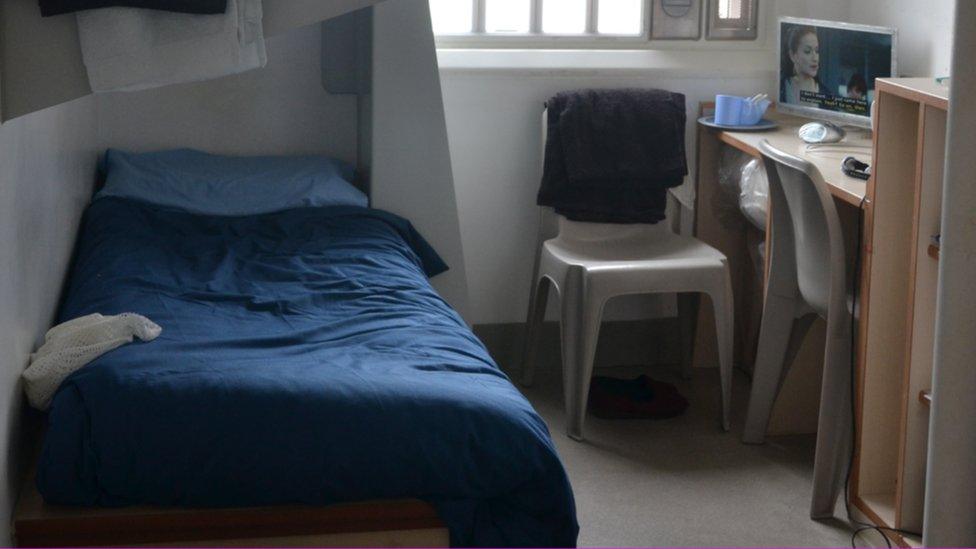
Many prisoners are quick to tell us how much they like the prison
Of course incarceration is not supposed to be a five star experience.
But campaigners argue most prisoners will be released and that some form of affective rehabilitation in jail could prevent them from reoffending once they get out.
As the number of prisoners increases here at HMP Oakwood, there is a concern among some prisoners the housing blocks will become overcrowded, which could lead to more violence and disorder.
Overcrowding is a problem facing many jails in the country, and the management here tell me they are determined to bring in more staff so that the system does not crash as a result of more inmates.
- Published26 July 2016
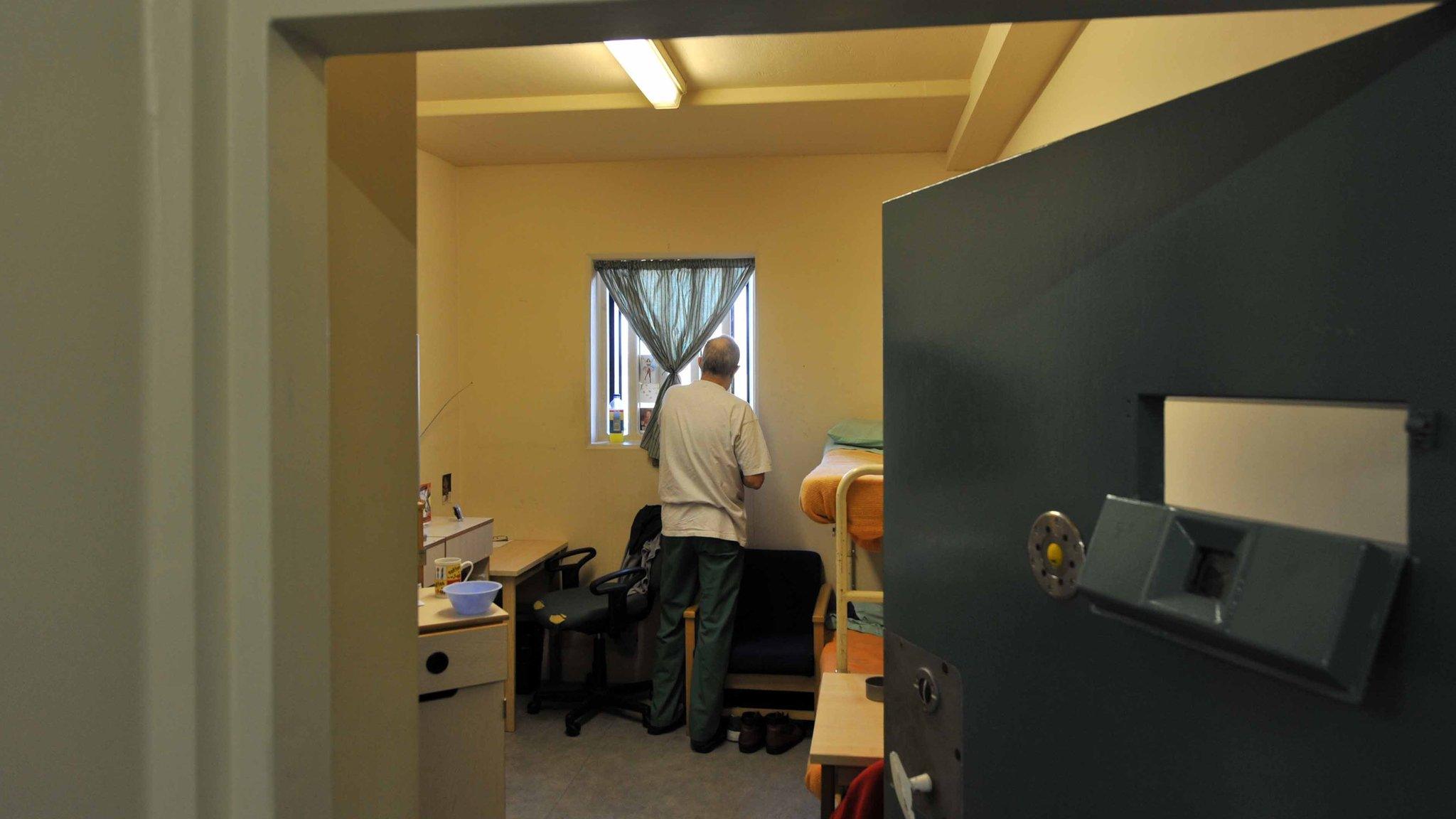
- Published1 August 2014
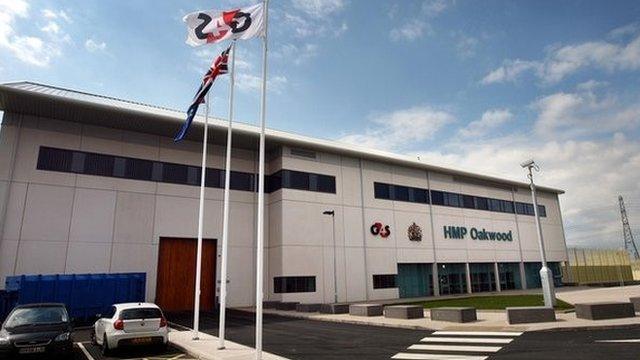
- Published4 February 2014
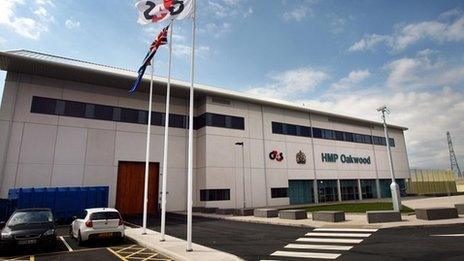
- Published6 January 2014
.jpg)
- Published21 January 2014
